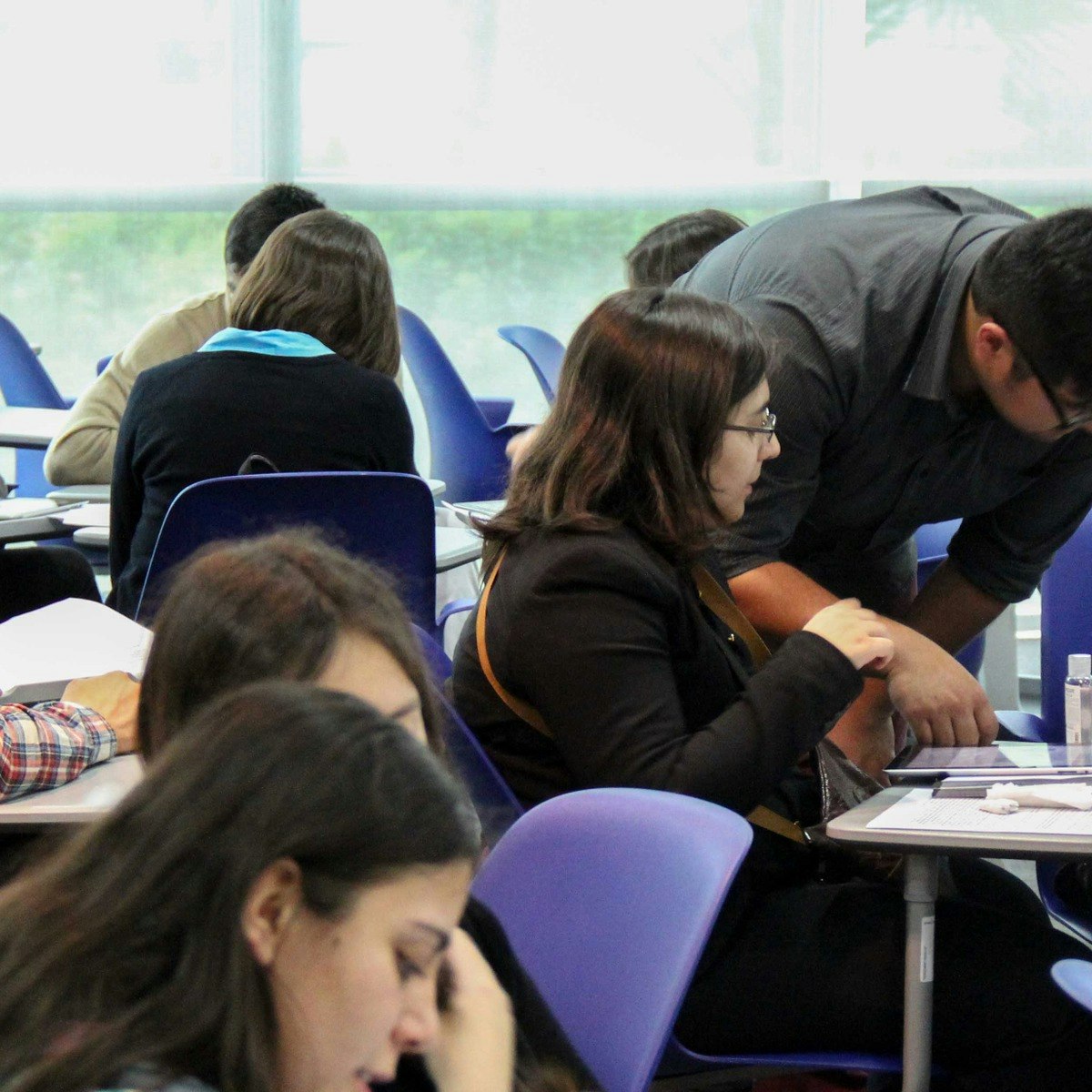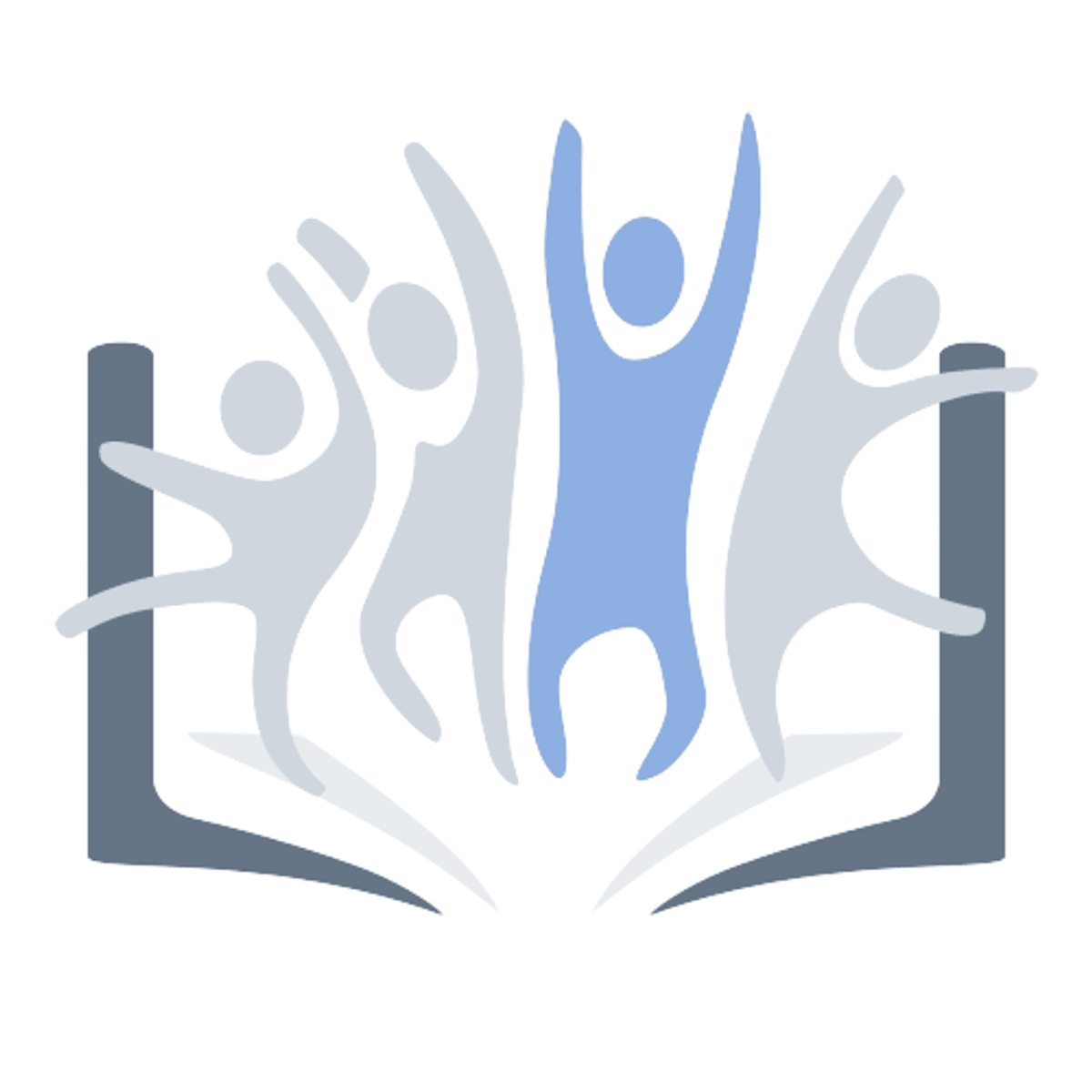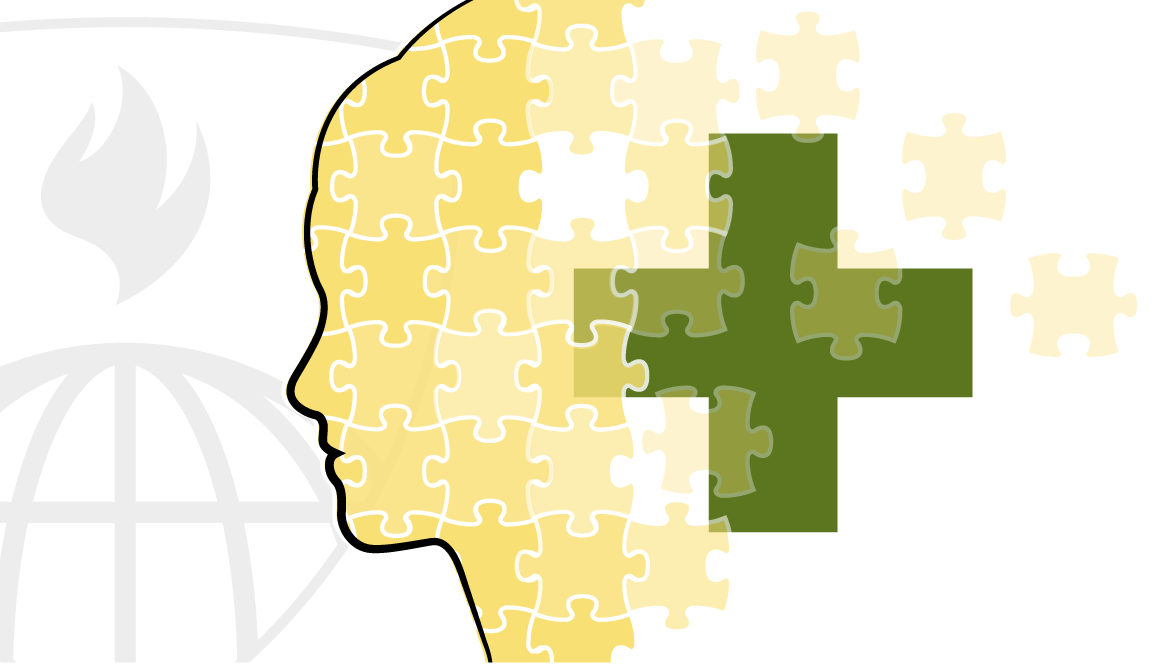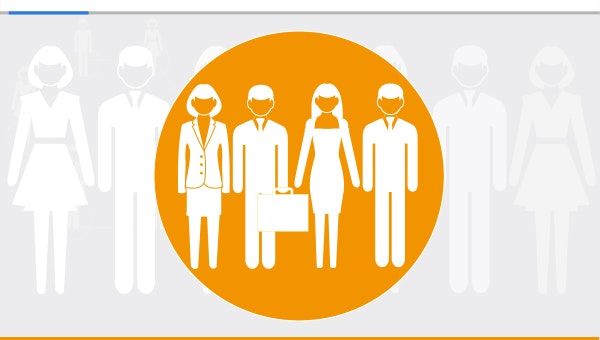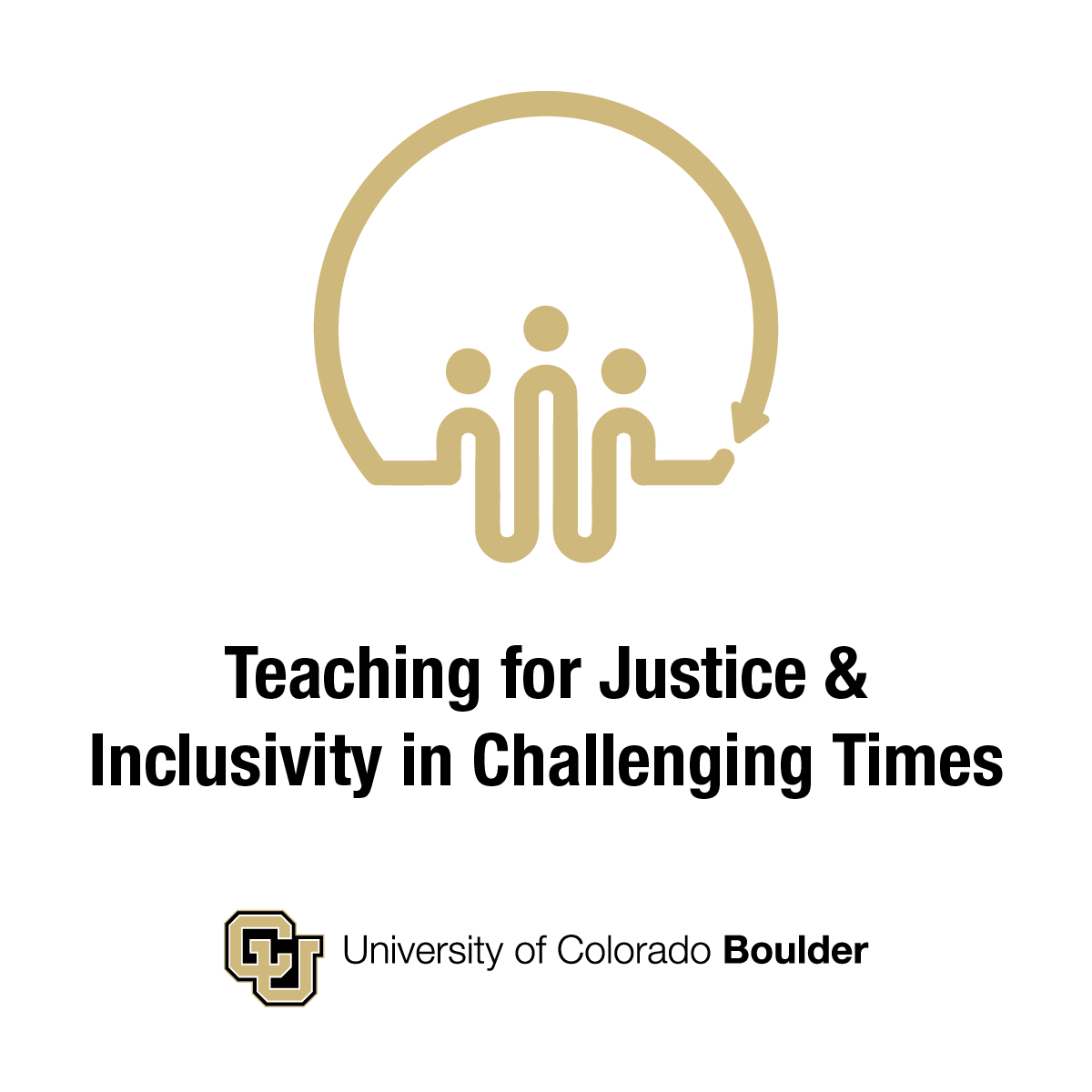School Counselor
Exploring a Career as a School Counselor
School counselors are vital members of the educational team, dedicated to supporting students' academic achievement, personal and social development, and career planning. They work within schools at all levels, from elementary to high school, providing guidance and resources to help students navigate challenges and reach their full potential. The role is multifaceted, involving direct student services, collaboration with educators and families, and program development.
Working as a school counselor offers the unique opportunity to make a significant difference in the lives of young people. Engaging aspects include fostering students' resilience, helping them explore future possibilities, and contributing to a positive and supportive school climate. It's a dynamic career that combines elements of education, psychology, and social work, demanding empathy, strong communication skills, and a commitment to student well-being.
Introduction to School Counseling
This section provides a foundational understanding of the school counseling profession, its history, and how it fits within the broader educational landscape.
Defining the Role and Its Purpose
A school counselor is a certified or licensed professional who addresses the needs of students through a comprehensive school counseling program. The primary objective is to support students in three main domains: academic development, career development, and social-emotional development. This involves helping students set learning goals, overcome academic hurdles, and plan for post-secondary education or careers.
Counselors also focus on students' personal growth, helping them develop essential life skills such as decision-making, conflict resolution, and emotional regulation. They strive to create a safe, respectful, and supportive learning environment for all students. This comprehensive approach ensures that students receive holistic support tailored to their individual needs and developmental stages.
Ultimately, the goal is to empower students to become well-adjusted, responsible individuals capable of succeeding in school and beyond. Counselors act as advocates for students, working to remove barriers to learning and ensuring equitable access to opportunities.
The Evolution of School Counseling
The school counseling profession has evolved significantly over the past century. Initially emerging in the early 20th century with a focus on vocational guidance, the role aimed to help students transition from school to the workforce, particularly amidst industrialization.
Over time, the focus expanded beyond just career advice. Influenced by developments in psychology and education, the role grew to encompass personal and social guidance. The mid-20th century saw increased emphasis on mental health and addressing the developmental needs of all students, not just those planning for specific vocations.
Today, comprehensive school counseling programs, guided by organizations like the American School Counselor Association (ASCA), emphasize a proactive, developmental approach. Modern counselors address a wide range of student needs, integrating academic, career, and social-emotional support to foster overall student success.
Distinguishing Counselors from Related Professionals
While school counselors often collaborate with other support personnel, their role is distinct. School psychologists, for instance, typically focus more on psychological assessment, testing for learning disabilities or developmental issues, and providing more intensive mental health interventions.
School social workers often concentrate on connecting students and families with community resources, addressing issues like poverty, neglect, or abuse, and bridging the gap between home and school environments. They may conduct home visits and work extensively with external agencies.
School counselors, in contrast, generally implement a school-wide program designed to benefit all students. While they provide responsive services like short-term counseling and crisis intervention, their primary focus includes preventative guidance lessons, academic planning, and post-secondary readiness, integrated into the school's overall mission.
Understanding these distinctions helps clarify the unique contribution school counselors make within the educational system.
Roles and Responsibilities of a School Counselor
School counselors wear many hats, fulfilling a diverse range of duties critical to student development and school functioning. Their responsibilities span academic support, social-emotional guidance, crisis intervention, and collaborative efforts.
Academic Advising and Post-Secondary Planning
A core function of school counselors, particularly at the secondary level, is academic advising. This involves helping students select appropriate courses, monitor their academic progress, and develop effective study habits. Counselors work with students to set academic goals and overcome obstacles that might hinder their learning.
They also play a crucial role in college and career readiness. Counselors provide information about post-secondary options, including colleges, universities, vocational schools, and military service. They assist students with the application process, financial aid exploration, and standardized test preparation.
This guidance helps students make informed decisions about their future paths, aligning their academic plans with their personal interests and career aspirations. It ensures students are prepared for the transition after high school.
These courses offer insights into career orientation and preparing students for higher education.
Fostering Social-Emotional Growth
School counselors are instrumental in promoting students' social and emotional well-being. They teach coping strategies, interpersonal skills, and emotional regulation through classroom guidance lessons, small group counseling, and individual sessions.
Topics often addressed include stress management, conflict resolution, friendship skills, empathy, and responsible decision-making. Counselors help students navigate the complex social dynamics of school and develop a positive self-concept.
By fostering these skills, counselors contribute to a healthier school climate and equip students with tools essential for success in all areas of life. Proactive social-emotional learning (SEL) initiatives can reduce behavioral problems and improve academic engagement.
These courses delve into social-emotional learning, character development, and creating positive environments.
These books offer perspectives on emotional intelligence and self-compassion, valuable traits for both counselors and the students they support.
Managing Crises and Resolving Conflicts
School counselors are often first responders during student crises, providing immediate support and intervention. This can involve situations like grief and loss, bullying, family emergencies, or mental health challenges.
They are trained in crisis management protocols and work to ensure student safety and well-being. Counselors provide a calm presence, offer emotional support, and connect students and families with necessary resources or referrals for more intensive help.
Conflict resolution is another key area. Counselors mediate disputes between students, teaching them constructive ways to handle disagreements. They may also implement school-wide programs aimed at preventing bullying and promoting positive peer relationships.
Understanding how to support individuals through difficult times is crucial. These resources cover psychological first aid and trauma-informed care.
Collaborating with Stakeholders
Effective school counseling requires strong collaboration with teachers, administrators, parents, and community members. Counselors work closely with teachers to understand students' classroom experiences and to support academic and behavioral interventions.
They consult with administrators on school policies and programs that affect student well-being and contribute to school improvement planning. Collaboration ensures that counseling services are integrated effectively within the school's overall structure.
Engaging families is also critical. Counselors communicate with parents or guardians about student progress, provide resources, and facilitate parent workshops on topics like child development or college planning. Building these partnerships between home and school is essential for student success.
These courses focus on engaging families and the wider community within the school setting.
Educational Pathways to Becoming a School Counselor
Embarking on a career as a school counselor involves specific educational steps, typically culminating in a master's degree and state licensure or certification. Understanding these requirements is crucial for aspiring counselors.
Undergraduate Foundations
While there isn't one specific required major, undergraduate degrees in fields like psychology, sociology, education, or social work provide a strong foundation. Coursework in child development, human behavior, learning theories, and social issues is particularly beneficial.
Gaining relevant experience during undergraduate years is also valuable. Volunteering or working in schools, youth centers, or community organizations can offer practical insights into working with young people and navigating educational settings.
Building strong academic credentials and securing positive letters of recommendation are important steps for gaining admission into competitive graduate programs in school counseling.
These foundational courses cover human development and psychology, which are central to understanding student needs.
This book provides a comprehensive look at development across the lifespan.
Graduate Degree Requirements
A master's degree in school counseling is typically the minimum educational requirement to practice as a school counselor in the United States. These programs are usually two to three years in length and combine academic coursework with practical field experience.
Curricula cover topics such as counseling theories, ethical and legal issues, group counseling techniques, career development, multicultural counseling, assessment methods, and child and adolescent development. Look for programs accredited by organizations like the Council for Accreditation of Counseling and Related Educational Programs (CACREP) as this is often preferred or required for licensure.
A significant component of graduate study is the supervised practicum and internship. These experiences allow students to apply their knowledge in real-world school settings under the guidance of experienced professionals, accumulating required hours of practice.
This specialized certificate course offers broad training in counseling skills applicable in various settings, including schools.
State Licensure and Certification
After completing a master's degree, aspiring counselors must obtain state-specific licensure or certification to practice in public schools. Requirements vary significantly by state but generally include passing a standardized examination (like the Praxis Professional School Counselor exam).
States also mandate a certain number of supervised postgraduate hours, often completed during the internship phase of the graduate program or in early career positions. Background checks are standard procedure.
Maintaining licensure typically requires ongoing professional development through continuing education units (CEUs) to stay current with best practices, ethical standards, and new developments in the field. It's crucial to research the specific requirements of the state where you intend to work early in your planning process. The American School Counselor Association (ASCA) website provides links to state requirements.
Doctoral Studies and Advanced Roles
While a master's degree is sufficient for most school counseling positions, some professionals pursue doctoral degrees (Ph.D. or Ed.D.) in counselor education and supervision or related fields. A doctorate can open doors to roles in university teaching, research, program administration, or advanced clinical practice.
Doctoral programs involve advanced coursework, extensive research culminating in a dissertation, and further supervised clinical and supervisory experience. These programs prepare individuals for leadership positions, contributing to the field through scholarship, training future counselors, or developing innovative counseling programs.
Choosing between a Ph.D. (focused more on research) and an Ed.D. (often focused more on applied practice and leadership) depends on individual career goals. Both represent a significant commitment to advancing expertise in the field.
Online Learning and Skill Development
For those exploring school counseling, especially career changers or individuals supplementing formal education, online learning offers valuable opportunities to build foundational knowledge and develop specific skills. OpenCourser provides a vast catalog to explore relevant subjects.
Building Foundational Knowledge Online
Online courses can provide accessible introductions to core concepts in psychology, education, and human development – all essential underpinnings for school counseling. Topics like developmental psychology, learning theories, abnormal psychology, and social psychology can be explored through self-paced online modules.
These courses can help individuals gauge their interest in the field before committing to a full graduate program. They can also supplement existing knowledge or refresh understanding of key theories and research findings relevant to counseling practice.
While online courses cannot replace a formal degree or required supervised experience, they serve as excellent preparatory tools, helping learners build a solid theoretical base upon which practical skills can be developed.
These books offer insights into developmental stages and psychological frameworks relevant to the field.
Developing Core Counseling Skills
Certain fundamental counseling skills, such as active listening, empathy, and effective communication, can be introduced and practiced through online platforms. Courses focusing on interpersonal skills, cultural competency, and ethical considerations provide valuable frameworks.
Online modules might offer simulated scenarios, case studies, or reflective exercises to help learners practice applying theoretical concepts. Developing cultural competence, understanding biases, and learning to work effectively with diverse populations are critical areas accessible through online learning.
Remember, however, that mastering counseling skills requires direct interaction and feedback. Online learning is best viewed as a supplement to, rather than a substitute for, the hands-on training and supervision received in practicum and internship settings.
These courses focus on developing empathy, cultural competence, and specific counseling approaches.
Using Case Studies and Portfolios
Online platforms can offer access to case studies presenting various student scenarios involving academic, social-emotional, or career-related challenges. Analyzing these cases allows learners to practice applying theoretical knowledge and ethical decision-making frameworks.
Developing responses to case studies or creating hypothetical intervention plans can be part of building a preliminary portfolio. While not a substitute for real-world experience, this demonstrates engagement with the complexities of the field and can be a useful learning tool.
Some online courses may include project components where learners develop sample guidance lessons or program outlines, further contributing to a portfolio that showcases understanding and developing skills.
This course includes case management principles relevant to supporting individuals.
Integrating Online Learning with Formal Education
Online courses are most effective when integrated strategically with formal education and training. University students might use them to deepen understanding of specific topics covered in their degree programs or explore areas not emphasized in their curriculum.
Career changers can use online learning to bridge knowledge gaps or gain familiarity with educational systems before entering a graduate program. Professionals already in the field can use online courses for continuing education, staying updated on new research, techniques, or technologies relevant to school counseling.
Platforms like OpenCourser make it easy to find courses across various providers, compare syllabi using the "Save to list" feature (manageable here), and identify resources that align with specific learning goals or state CEU requirements.
Explore relevant courses in Psychology and Education to supplement your learning journey.
Career Progression for School Counselors
A career in school counseling offers various pathways for growth and specialization, moving beyond entry-level positions to leadership roles or related fields. Understanding these trajectories can help in long-term career planning.
Entry-Level vs. Experienced Roles
Entry-level school counselors typically focus on direct service delivery, implementing the comprehensive school counseling program under supervision. This involves individual and group counseling, classroom guidance, academic advising, and initial consultations with parents and teachers.
With experience, counselors often take on more complex cases, develop greater autonomy, and may begin to specialize in areas like college counseling, crisis intervention, or specific student populations (e.g., students with disabilities, English language learners).
Experienced counselors may also mentor new counselors, lead specific initiatives (like anti-bullying campaigns or SEL programs), and take on more significant roles in school-wide planning and data analysis to evaluate program effectiveness.
This book explores the developmental stage many high school counselors work with.
Leadership Opportunities within Schools and Districts
Experienced school counselors can move into leadership roles within their school or district. Positions like Counseling Department Chair or Lead Counselor involve overseeing the counseling program at a specific school, managing budgets, and supervising other counselors.
At the district level, roles such as District Coordinator of Counseling Services offer broader responsibilities. These positions typically involve developing and overseeing counseling programs across multiple schools, providing professional development, ensuring compliance with state and federal regulations, and advocating for counseling services at the district level.
These leadership roles require strong organizational, supervisory, and advocacy skills, often built through years of effective practice and additional training or certifications.
Transitioning to Administration or Policy
The skills and experiences gained as a school counselor can serve as a springboard to other roles within education. Some counselors pursue further education or certifications to become school principals or other administrators.
Their understanding of student needs, school climate, and educational systems provides a valuable perspective for school leadership. Knowledge of developmental psychology, communication skills, and experience collaborating with diverse stakeholders are transferable assets.
Others may move into policy roles at the district, state, or national level, advocating for educational reforms, developing student support policies, or working for educational organizations or government agencies. This path often requires additional expertise in policy analysis or educational leadership.
Salary Expectations and Market Trends
Salaries for school counselors vary based on factors like geographic location, level of experience, educational attainment (master's vs. doctorate), and the type of school district (public vs. private). Generally, salaries are comparable to teachers with similar experience and education levels within the same district.
According to the U.S. Bureau of Labor Statistics (BLS), the employment of school and career counselors is projected to grow faster than the average for all occupations. As of May 2023, the median annual wage was $61,000, though this figure can vary significantly.
Increased awareness of the importance of mental health and social-emotional learning in schools, along with growing student enrollments in some areas, contribute to the demand for qualified school counselors. However, budget constraints in school districts can sometimes impact hiring.
Ethical and Legal Considerations
School counselors navigate complex ethical and legal landscapes daily. Adherence to professional codes of ethics and awareness of legal obligations are paramount to protecting students and practicing responsibly.
Confidentiality and Its Limits
Confidentiality is a cornerstone of the counseling relationship, allowing students to share sensitive information in a safe space. Counselors have an ethical obligation to protect student disclosures.
However, confidentiality is not absolute, especially when working with minors. Counselors must inform students about the limits of confidentiality at the outset of the relationship. Exceptions typically include situations where a student poses a danger to themselves or others, suspected child abuse or neglect, or when legally required by a court order.
Navigating these limits requires careful judgment, adherence to school policies, and consultation with supervisors or colleagues when necessary. Balancing student privacy with safety obligations is a critical skill.
Mandated Reporting Requirements
School counselors, like other school personnel, are mandated reporters. This means they are legally obligated to report suspected cases of child abuse or neglect to the appropriate child protective services agency.
Understanding the specific laws and reporting procedures in their state is crucial. This includes knowing what constitutes abuse or neglect, the timelines for reporting, and the designated agency to contact.
Failure to report suspected abuse or neglect can have serious legal and professional consequences. Counselors must prioritize student safety and fulfill their reporting duties diligently, even when it challenges the counseling relationship.
These courses address safeguarding children and related responsibilities.
Addressing Bias and Promoting Equity
Ethical practice demands that school counselors provide services equitably to all students, regardless of race, ethnicity, gender, sexual orientation, socioeconomic status, disability, or other personal characteristics. This requires ongoing self-reflection to identify and address personal biases.
Counselors must advocate for fair and equitable policies and practices within the school. This might involve challenging discriminatory practices, promoting culturally responsive curricula, and ensuring all students have access to the resources and opportunities they need to succeed.
Developing cultural competence is an ongoing process involving learning about diverse backgrounds, understanding systemic barriers, and adapting counseling approaches to meet the unique needs of different student populations.
These courses explore diversity, inclusivity, and culturally responsive practices in education.
Navigating Legal Precedents
School law and legal precedents related to student rights, privacy, and school responsibilities evolve over time. Counselors need to stay informed about relevant court decisions and legislation that impact their practice.
Issues such as student records privacy (FERPA), students' rights related to free speech or expression, procedures for addressing disciplinary issues, and accommodations for students with disabilities all have legal dimensions.
Consulting with school district legal counsel, staying updated through professional organizations like ASCA, and participating in relevant professional development are ways counselors can remain informed about the legal landscape affecting their work.
Impact of Technology on School Counseling
Technology is increasingly influencing the field of school counseling, offering new tools for service delivery, data management, and communication, while also presenting new challenges and ethical considerations.
Digital Tools for Assessment and Support
Various digital tools are emerging to support school counselors. Mental health screening tools administered online can help identify students potentially needing support, although they must be used ethically and followed up with appropriate assessment.
Communication platforms allow counselors to connect with students and parents more efficiently through secure messaging or email. Learning management systems may host guidance materials or resources accessible to students anytime.
Some platforms offer resources for social-emotional learning, mindfulness exercises, or mood tracking, providing students with tools they can access independently. Counselors must carefully vet these tools for appropriateness and effectiveness.
This course explores using a specific platform for classroom management and communication.
Virtual Platforms for College and Career Planning
Technology plays a significant role in college and career readiness. Online platforms allow students to research colleges, explore career paths, take virtual campus tours, and manage application materials.
Counselors utilize these platforms to track student progress, manage recommendation letters, and share resources related to financial aid and scholarships. Virtual college fairs and online career assessments expand access to information for students.
These tools can streamline the planning process and provide students with vast amounts of information, but counselors remain essential in helping students navigate these resources effectively and make personalized decisions.
These tools help create engaging presentations and visual aids, useful for guidance sessions.
Data Privacy and Security Concerns
The increased use of technology necessitates a strong focus on data privacy and security. School counselors handle sensitive student information, including academic records, counseling notes, and assessment data.
Using digital platforms requires adherence to privacy laws like FERPA (Family Educational Rights and Privacy Act) and ensuring that any third-party vendors used by the school have robust security measures in place.
Counselors must be trained in secure data handling practices, understand school policies regarding technology use and student data, and communicate clearly with students and parents about how information is stored and protected.
Artificial Intelligence in Counseling
Artificial intelligence (AI) is beginning to emerge in educational contexts, with potential applications in counseling. AI might be used to analyze large datasets to identify students at risk or predict potential academic difficulties, allowing for earlier intervention.
Chatbots or AI-driven platforms could potentially offer basic information or initial support resources, although they cannot replace the empathy and nuanced understanding of a human counselor. Ethical considerations regarding bias in algorithms, data privacy, and the appropriate role of AI in sensitive interactions are paramount.
The field is still exploring how AI can best support, rather than replace, the work of school counselors, focusing on tools that enhance efficiency or provide insights while maintaining human connection and professional judgment.
This course touches on using AI tools like ChatGPT for teacher assistance, highlighting potential applications and considerations.
Global Perspectives in School Counseling
While this article primarily focuses on the U.S. context, understanding school counseling from a global perspective reveals diverse approaches and common challenges faced internationally.
Comparing U.S. and International Models
The structure and focus of school counseling vary significantly worldwide. While the U.S. model often emphasizes a comprehensive, developmental approach covering academic, career, and social-emotional domains, other countries may prioritize specific areas.
Some systems might focus heavily on vocational guidance, while others place greater emphasis on mental health support or addressing specific social issues prevalent in their communities. The level of training required, the counselor-to-student ratio, and the integration of counselors into the school system also differ widely.
Examining these different models provides insights into alternative ways of supporting students and highlights the cultural and societal factors that shape the profession globally.
Counseling in Diverse Settings
Implementing effective school counseling in low-resource settings presents unique challenges. Lack of funding, large student populations per counselor, limited access to technology, and inadequate training opportunities can hinder service delivery.
Counselors in these contexts often need to be highly resourceful, adapting evidence-based practices to fit local needs and constraints. Collaboration with community organizations, training paraprofessionals, and focusing on preventative group interventions are common strategies.
Understanding the specific cultural norms and addressing basic needs like safety and nutrition may be prerequisites for effective counseling interventions in many parts of the world.
These courses address education in diverse settings, including rural and international contexts.
Supporting Migrant and Refugee Students
School counselors play a crucial role in supporting students who have experienced migration or displacement. These students may face unique challenges, including language barriers, cultural adjustment difficulties, trauma exposure, and interrupted schooling.
Counselors need specialized training in trauma-informed care and culturally responsive practices to effectively support this population. Connecting families with community resources, facilitating communication between home and school, and creating a welcoming and inclusive school environment are key responsibilities.
Advocating for appropriate educational support and mental health services for migrant and refugee students is an essential part of the counselor's role in promoting equity and well-being.
International Frameworks and Influence
International organizations like UNESCO (United Nations Educational, Scientific and Cultural Organization) and WHO (World Health Organization) influence school counseling practices globally through research, policy recommendations, and frameworks.
These organizations often emphasize the importance of holistic student development, inclusive education, mental health promotion in schools, and addressing global challenges like violence prevention or health education.
Their work helps establish international standards and encourages countries to develop and strengthen their school counseling services, recognizing the critical role counselors play in achieving broader educational and societal goals.
Frequently Asked Questions (Career Focus)
Here are answers to some common questions individuals exploring a career in school counseling often ask.
How does a school counselor's salary compare to a teacher's?
In most public school districts, school counselors are placed on the same salary schedule as teachers. This means their pay is typically based on years of experience and level of education (e.g., master's degree, master's + additional credits, doctorate).
Therefore, a counselor with a master's degree and five years of experience would generally earn a similar salary to a teacher with the same qualifications and experience within that district. Some districts might offer small stipends for the additional responsibilities or required certification, but base salaries are usually comparable.
Salary levels vary significantly between states and districts, influenced by factors like cost of living and local funding for education.
Can school counselors transition into private practice therapy?
Transitioning to private practice as a therapist usually requires additional licensure beyond what's needed for school counseling. While a master's in school counseling provides foundational therapeutic skills, most states require a different license (e.g., Licensed Professional Counselor - LPC, Licensed Mental Health Counselor - LMHC, or Licensed Clinical Social Worker - LCSW) for independent private practice.
Obtaining these licenses typically involves specific coursework (which may or may not fully overlap with a school counseling curriculum), passing a different licensing exam, and completing a significant number of supervised postgraduate clinical hours focused on mental health therapy, often more than required for school certification.
Therefore, while possible, it's not a direct transition and requires meeting the distinct requirements for clinical mental health licensure.
What is the burnout rate like for school counselors?
School counseling can be demanding, and burnout is a concern, as it is in many helping professions. Factors contributing to potential burnout include large caseloads (high student-to-counselor ratios), extensive responsibilities, dealing with crisis situations, limited resources, and navigating complex student needs.
However, the profession also offers significant rewards, such as witnessing student growth and making a positive impact. Strategies to mitigate burnout include setting boundaries, practicing self-care, seeking supervision or peer support, engaging in ongoing professional development, and advocating for manageable caseloads and systemic support within the school.
Research comparing burnout rates directly to professions like teaching or social work yields varied results, but the potential for emotional exhaustion is a recognized challenge in the field.
These courses focus on resilience, stress management, and self-care, which are vital for preventing burnout.
Are there emergency certifications during staff shortages?
During significant staff shortages, some states may offer temporary or emergency certifications to allow individuals with related qualifications (e.g., teachers with counseling coursework, retired counselors) to fill positions. However, these are typically short-term solutions.
Requirements for these emergency credentials vary greatly by state and are subject to change based on need. They often require the individual to be actively working towards full certification within a specified timeframe.
Relying on obtaining an emergency certification is not a recommended pathway into the profession. The standard route involving a master's degree and meeting full state licensure requirements remains the norm and ensures practitioners are adequately prepared.
Do military bases or international schools hire counselors?
Yes, there are opportunities for school counselors in settings outside traditional U.S. public schools. The Department of Defense Education Activity (DoDEA) operates schools for military families on bases domestically and internationally, and they hire qualified school counselors.
Numerous international schools around the world also employ school counselors to support their diverse student populations. These positions often require standard counseling qualifications and may prefer candidates with experience working with multicultural or transient student populations.
These roles can offer unique experiences but may have specific application processes and requirements, including background checks and sometimes adaptability to different cultural contexts.
How might AI tools change hiring requirements?
It's unlikely that AI tools will fundamentally change the core hiring requirements for school counselors in the near future, which center on education (master's degree), licensure/certification, and supervised experience. Empathy, ethical judgment, and interpersonal skills remain paramount and are not replicable by AI.
However, familiarity with educational technology, data analysis, and digital communication platforms is becoming increasingly important. Candidates who demonstrate digital literacy and an understanding of how technology can ethically support counseling services may have an advantage.
As AI tools become more integrated into education, future requirements might include specific training on using AI platforms relevant to counseling or student support, but the human element will remain central to the role.
Becoming a school counselor is a challenging yet deeply rewarding path for those passionate about supporting student success. It requires a specific educational commitment, strong interpersonal skills, ethical awareness, and a dedication to lifelong learning. By providing academic, career, and social-emotional guidance, school counselors empower students to navigate challenges and achieve their potential, making a lasting impact on individuals and the school community.



